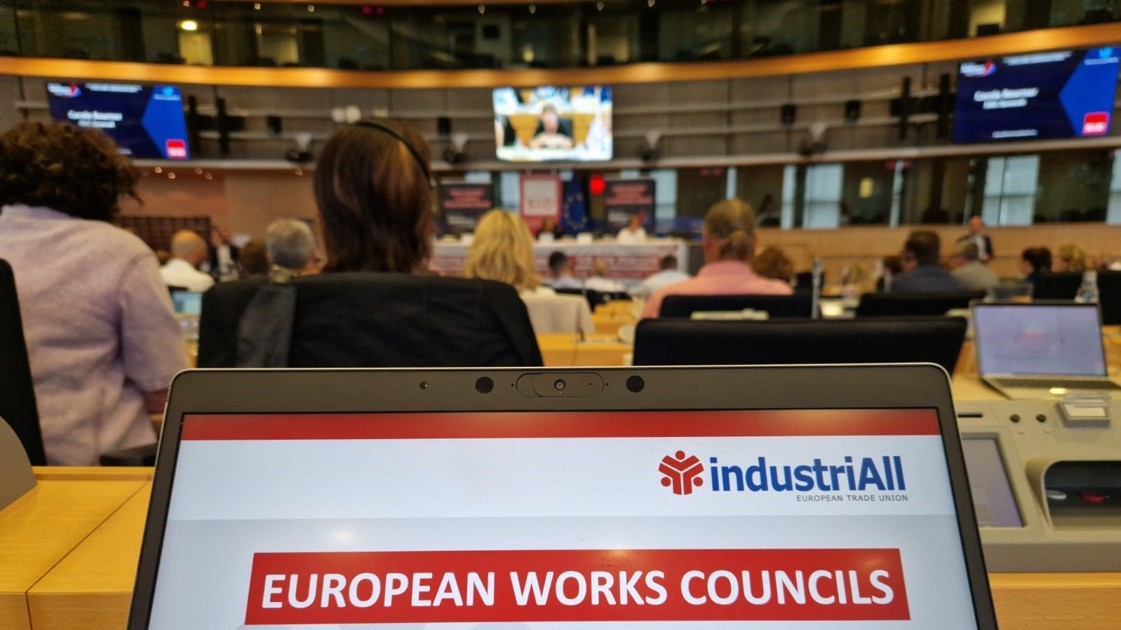IndustriAll Europe welcomes that the Commission’s proposal strengthens EWCs’ rights to effective information and consultation by clarifying its transnational scope, its timing before a company decision is made as well as its extent, as management will have to justify the reason for requesting confidentiality. The Commission's proposal also touches on the important issue of enforceability, opening the door to setting out clear rules on access to justice and financial sanctions in the event of a breach of EWC rights. Consideration has also been given to improving the gender balance in the EWCs’ composition.
In 2017, the European trade union movement sounded the alarm on the EWC Directive, exposing it as unfit for purpose. The vast majority of the more than 1,000 active EWCs are not functioning properly, as industriAll Europe can confirm from its more than 30 years of practice with more than 600 of the EWCs that exist today. Too often information is received too late and not enough to genuinely help workers’ representatives assess the strategic plans proposed by management. There is little consultation, and going to court remains an obstacle course.
All of the trade unions in Europe supporting the more than 20,000 members sitting on EWCs, were unanimous in their demands: Stronger EWC rights, compliance with those rights, and the possibility for EWCs to enforce their rights when they are breached.
Our message did not go unheard and was taken up by the European Parliament, which last year backed the trade union demands in a call for a binding EU initiative to improve the EWC Directive . The European Commission has today responded to this call from the European Parliament with a proposal that marks the start of a legislative process involving the European Parliament again and the Council.
Trade unions will seize the opportunity to continue to fight for key points to be included in any new EWC Directive, including:
- the need for quick reaction to breaches of EWC rights through the possibility of an injunction (temporary suspension of the management plan until the EWC has been properly informed and consulted)
- the need for simple and rapid access to justice for EWCs in each Member State
- the need for trade union expert not only to support EWC negotiations – a right we won at the last revision of the EWC in 2009 – but also to support operating EWCs
- quality and timely information and meaningful consultation on all transnational matters, including projects planned in one country that affect another
Isabelle Barthès, Acting Joint General Secretary of industriAll Europe says:
“EWCs are a key tool for anticipating and managing the many transformations our industries are confronted with. Without quality dialogue in companies, we will not be able to overcome the multiple crises we face and build a robust European industry that deliver quality jobs. Unfortunately, the current Directive does not deliver on the obligations it should. A stronger directive is urgently needed.
“We welcome today’s Commission proposal to strengthen the EWC Directive as a very important first step. The next steps will be equally crucial as trade unions turn to the European Parliament and the Council to insist on adopting clear measures to finally make EWC rights effective, enforceable and ultimately stronger.”
